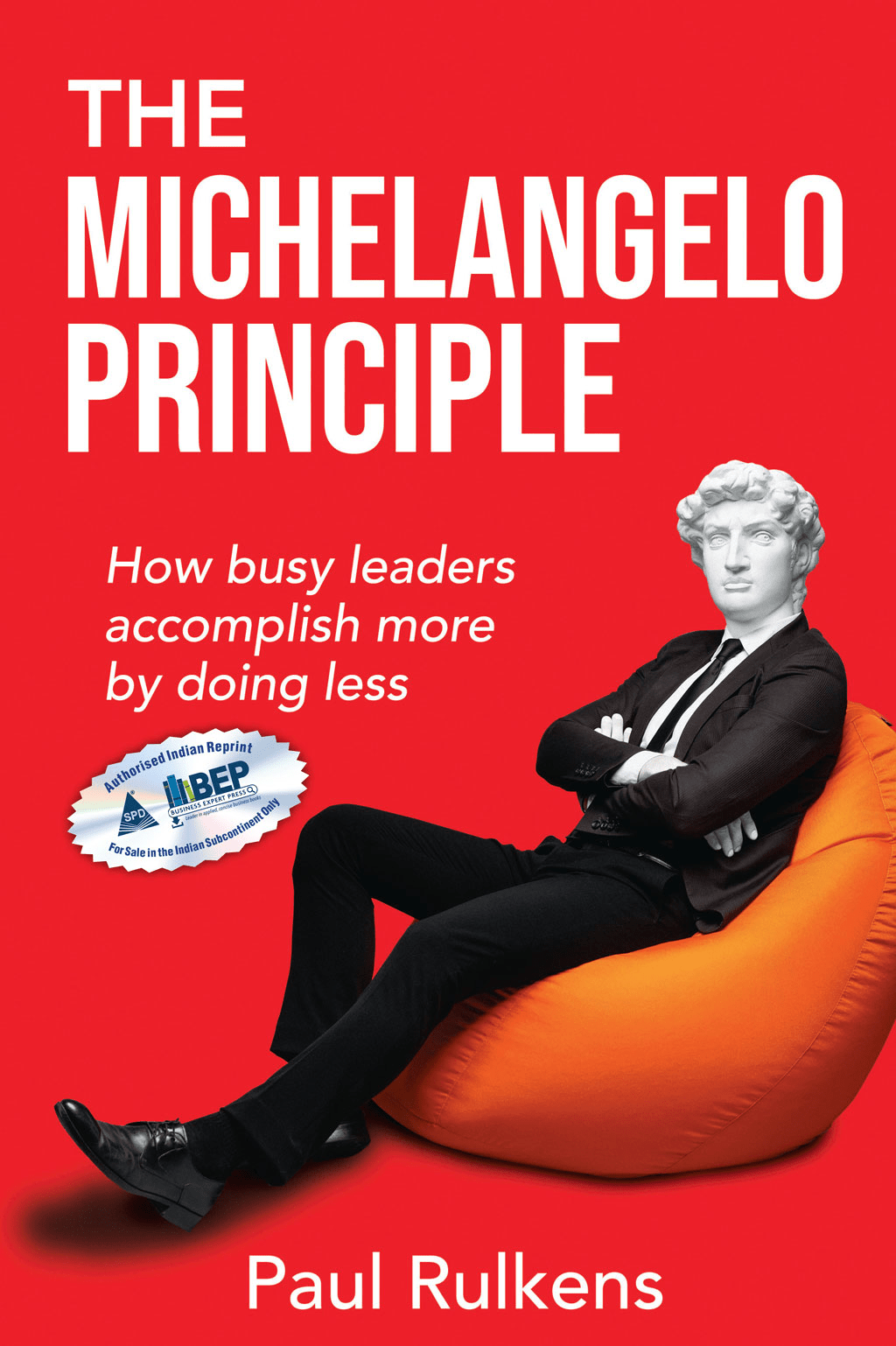BOOKZONE
Michelangelo Principle How Busy Leaders
Author : Paul Rulkens
Binding:Paperback
Publication Date 21/07/2025
Publisher : Shroff/Busines Expert Press
SKU:9789368080961
Select Your Gift
Gift Message (Optional)
Bulk Discount Get Exta 5% upto 10%
Share

List of FiguresIntroductionPart 1 Thinking DifferentlyChapter 1 The Michelangelo PrincipleChapter 2 Strategic ClarityChapter 3 Deep ImpactChapter 4 Extraordinary LeadershipChapter 5 Powerful DecisionsChapter 6 Time BanditsChapter 7 Speed TrapsChapter 8 Activating TeamsChapter 9 Radical ResilienceChapter 10 Your LegacyEpilogue: The Art of SubtractionPart 2 Acting DifferentlyAbout the AuthorRecommended ReadingsIndexTable of ContentsAbout the AuthorPaul Rulkens is a global expert in high-performance leadership. He has helped Fortune 500 companies, including McKinsey, Siemens, Nestl, Mercedes-Benz, and Uber, achieve breakthrough results doing less. A sought-after speaker, his TED talk Why the Majority Is Always Wrong has garnered over 6 million views. As a senior fellow at The Conference Board, Paul equips executives with proven strategies to accelerate growth and build high-performance organizations.Book DescriptionSuccess in leadership often becomes its own trap. The better you perform, the more complexity, noise, and demands pile onto your plate. But what if the key to extraordinary results isnt doing more, but removing what doesnt matter?The Michelangelo Principle: How Busy Leaders Accomplish More Doing Less challenges you to rethink leadership. Like Michelangelo carving David, true mastery lies not in adding, but in chiseling away the unnecessary to reveal your full potential.This book is designed for Corporate Olympianshigh-performing leaders caught in the paradox of success. With fresh perspectives, innovative concepts, and actionable tools, youll learn to sidestep inefficiencies, eliminate distractions, and amplify your leadership impact. Break Free from Leadership TrapsAvoid time-wasters, zombie projects, and the illusion of competence. Build ResilienceShift from rigidity to adaptability with systems that thrive in uncertainty. Activate Your TeamTransform committees into high-performance teams that own results. Leave a LegacyStop leaving trails of activity and start building systems that outlast you


